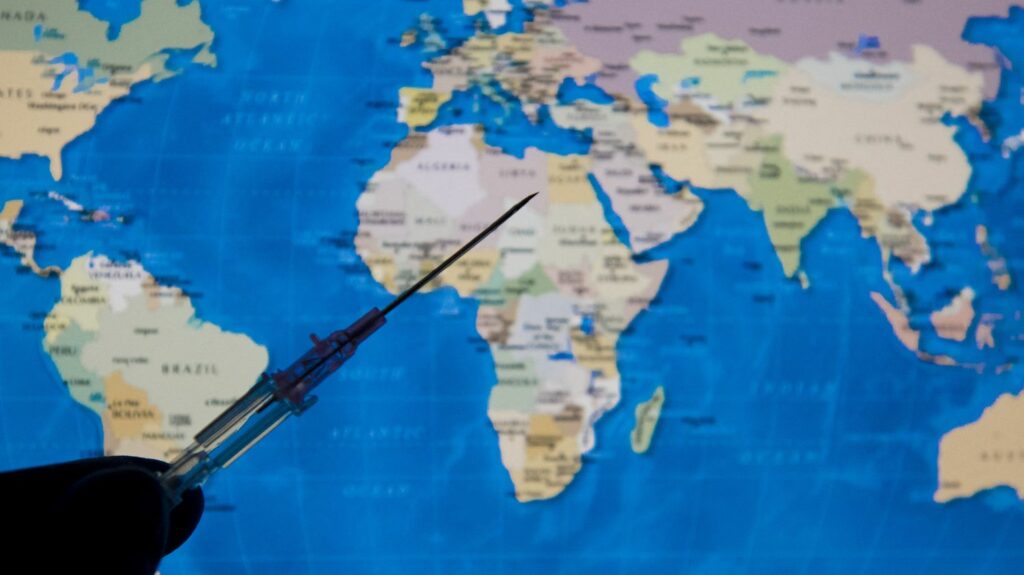Since the beginning of the Covid-19 pandemic, the need to produce vaccines against the disease on African soil in order to reduce the dependence of States vis-à-vis the outside has become essential. Also, the situation of the South African pharmaceutical group Aspen Pharmacare now seems paradoxical: the company has just announced that the future of its serum production plant against Covid-19 in South Africa was uncertain due to lack of of orders. However, everything had started well.
After months of negotiations launched in November 2021, the South African subsidiary of Aspen Pharmacare concluded on March 8, 2022 with Janssen Pharmaceuticals (Johnson & Johnson) an agreement which allowed it to produce and market on the African continent an anti-Covid-19 vaccine under the Aspenovax brand. The serum was made from the drug substance supplied by the American firm Johnson & Johnson. “With the conclusion of this agreement, our vision for Aspenovax, Africa’s own vaccine, has become a reality!« , Aspen CEO Stephen Saad said at the signing of the deal that was supposed to run until 2026.
Same story with John Nkengasong, director of the African Center for Disease Control and Prevention (Africa CDC). Who had estimated that this signature « was an important moment for the continent (because she allowed him) to own, manufacture and distribute the first vaccine (against Covid-19) which will cover the 55 states of the African Union, thus improving access to vaccines on the continent ».
Aspen was notably expecting orders from the international initiative Covax allowing the most deprived countries to access vaccination and from its African equivalent, AVAT (African Vaccine Acquisition Trust). “We will be able to provide 35 million doses of vaccine per month by June”assured in March the CEO of Aspen, Stephen Saad, reports Reuters.
« If we don’t receive any orders for vaccines, there will clearly be very little reason to keep the lines we currently use for production. (at the Gqeberha factory, in the Eastern Cape province, Ed) », laments today Stavros Nicolaou, in charge of the strategy of the pharmaceutical group, indicates Reuters.
« If Aspen can’t produce the Covid vaccines, what hope is there for others? adds Stephen Saad in the columns of the FinancialTimes (paid item). A feeling shared by John Nkengasong, the boss of Africa CDC. “If this venture fails, it sends a very bad signal about the objective (…) of developing vaccine production in Africa”he also confides to the FinancialTimes.
According to the British daily, African leaders are now scrambling to buy time, either by pushing (Johnson & Johnson) to produce the approximately 240 million doses they owe to the African Union in Aspen, or by encouraging the Covax vaccination program to order doses of Aspenovax ». Only, according to FinancialTimesJohnson & Johnson features « tens of millions of vaccines in stock that could be shipped to countries immediately (and) Covax already has agreements in place to access over two billion doses. ».
For Patrick Tippoo, executive director of the Africa Vaccine Manufacturing Initiative (Initiative for the manufacture of vaccines in Africa) quoted in the columns of the FinancialTimesthe situation in Aspen demonstrates the need “ensure that the capabilities we have developed or expanded are supported long-term by other vaccines so that in the next pandemic these capabilities are available”. This is essentially Aspen’s project, which was counting, according to Reuters, on the first orders from Aspenovax to give itself the means to produce other serums in the future.
According to the World Health Organization (WHO), only 16% of the continent’s inhabitants were vaccinated at the start of April 2022. South Africa, where the Aspenovax production plant is located, has doubled the number of people vaccinated.

